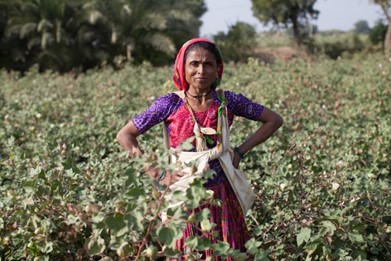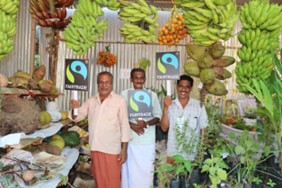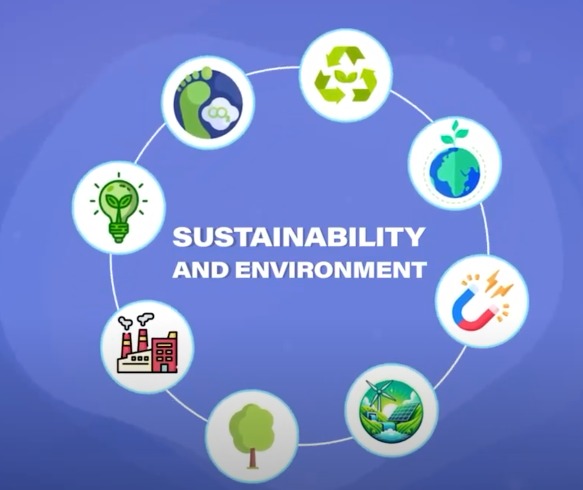PRODUCER PROFILE: Chetna Organic Agriculture Producer Company Limited (COAPCL)

ABOUT COAPCL
The Chetna Organic and Fair Trade Cotton Intervention Program (OCIP) was launched in 2004 as an ethical supply chain initiative based on sustainable agriculture principles such as organic and Fairtrade and non-pesticide management. OCIP was established with the aim of improving the livelihood of cotton farmers in the Indian states of Maharashtra, Odisha, and (then) Andhra Pradesh.
In order to achieve its goals, Chetna Organic has produced two national level farmer owned and managed institutions: Chetna Organic Famers Association (COFA) and Chetna Organic Agriculture Producer Company Ltd (COAPCL). COFA is a not-for-profit farmer support organization engaged, among other things, in technical training, social improvement, capacity building, and policy and advocacy work. COAPCL, on the other hand, is a commodity trading company, established in 2009, that works on developing sustainable national and international market linkages for smallholder farmers’ agricultural products.
Chetna Organic is supporting over 15,000 (234 in 2004) cotton farming families organized into approx.. 979 farmer self-help groups, which, in turn, are arranged into 13 co-operatives. Almost all of them (94%) are smallholder farmers who own below 2 hectares of land. These farmers live under abject conditions in more than 400 Indian villages, where the dependency on rein-fed agriculture makes them highly vulnerable to the unpredictability of nature and climate. Suicides are a major problem among farming communities in India, especially in Telengana and the Vidarbha region of Maharashtra.
COAPCL was Fairtrade certified in 2005. Out of the 15,279 farming families supported by Chetna Organic, 9,647 farms are Fairtrade certified and produce approximately 6,300 tonnes of seed cotton. Fairtrade sales are continuously growing. For these sales, Chetna Organic receives the Fairtrade Minimum Price of INR 34.45/Kg (or the market price if higher) plus the Fairtrade Premium of approx. INR 4/Kg (0.05 Euro Cents per KG of Seed Cotton) to invest in productivity and quality improvements, business support, and various community interventions in the three regions. Since Chetna Organic is a farmer owned organization, farmers have a direct role in decision making during production and marketing processes, as well as during the distribution and allocation of the Premium.
THE IMPACT OF FAIRTRADE
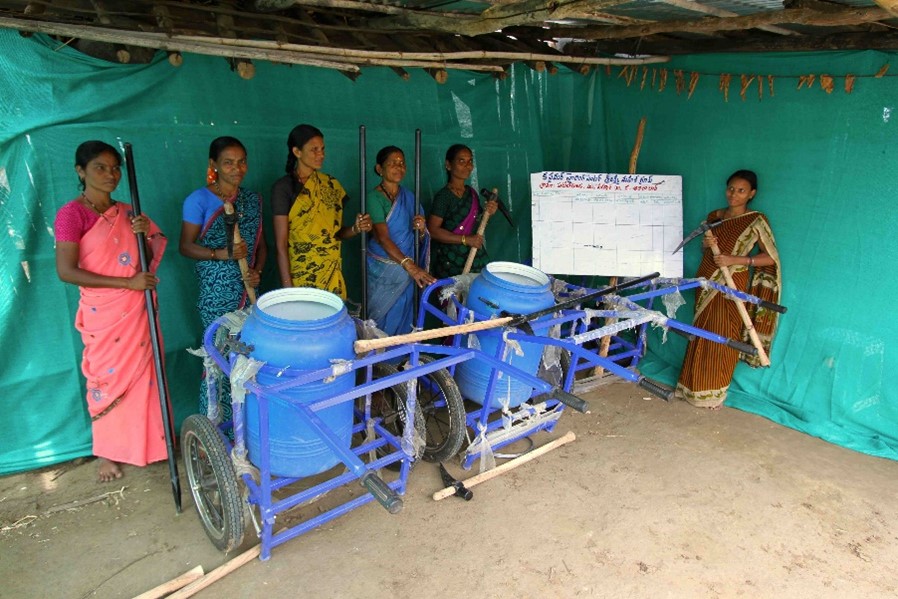
The majority of Chetna’s farmers store the cotton they produce in their homes, where it represents a health and safety hazard for the household, as it attracts various insects and fungi and poses a severe fire risk. Additionally, because of economic distress and uncertainty, small farmers are often unable to wait and sell their cotton when prices and profits are higher. In order to overcome these difficulties, Chetna Organic has converted part of the Fairtrade Premium into revolving funds at the co-op level. These funds are mainly used to make immediate part payments to the farmers, procure their cotton, and prevent it to be sold when it is less profitable. The Premium has also partly financed the construction of warehouses and procurement centres at the co-operative level where cotton from the farmers is aggregated and stored in a safe manner until the low season, when cotton prices are higher.
The Premium provides the co-ops with the necessary resources to support farmers in the procurement of non-GM cotton seeds, which are often difficult or even impossible to find during the critical sowing season. In this context, Pragathi MACS, one of the co-ops making up Chetna Organic, has employed a revolving fund mechanism to invest the premium and supply a complete ‘Seed Kit’ to its 3,000 smallholder cotton farmers at the beginning of each season. This kit includes non-GM cotton seeds, as well as different varieties of vegetables for homestead/kitchen gardens, pulses, and oilseeds and nursery plants/seedlings. In order to ensure the sustainability of the project, when the cotton is sold after the harvest, the co-op recovers the cost of the cotton seeds from the members and pools it back into the revolving fund.
Chetna Organic has also invested part of the Premium in a series of infrastructure projects intended to create viable income generating opportunities for the different co-ops, and to improve the productivity and the livelihoods of smallholder farmers. These projects include, among others, the construction of dhal mills, a bio-fertilizer unit, and a nursery, as well as the purchase of a tractor and attachments. Moreover, the aforementioned Pragathi MACS co-op in Telengana has been able to use the Premium to instigate larger innovations that can potentially benefit the cotton farming communities as a whole. In particular, the co-op has purchased land and has setup an eco centre to undertake various farm research and innovations and demonstrate best practices for farmers to adopt.
A share of the Premium, along with other funds, has served as support for the institution of villages in the Adilabad district, Telengana, where all farmers make use of organic and Fairtrade practices and produce certified non-GM cotton.
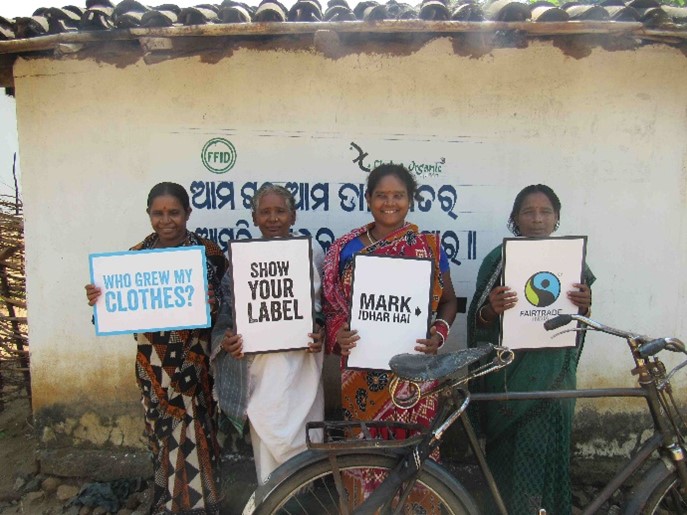
Adapted from Fairtrade Canada: https://fairtrade.ca/producers-products/cotton/chetna/
